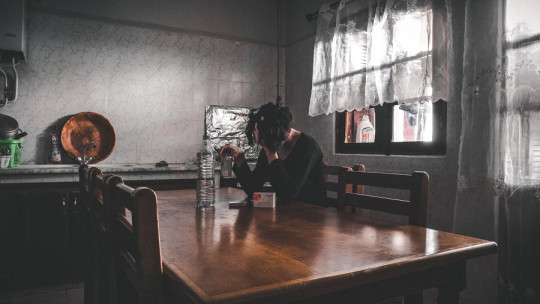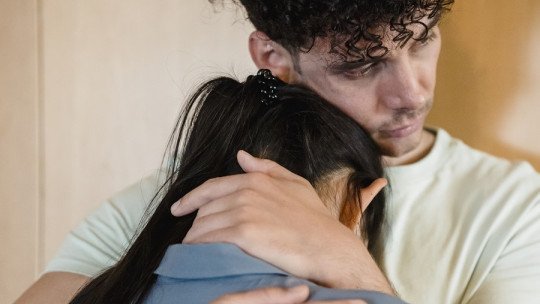
Welcome to this open conversation about a delicate but relevant topic in the field of relationships and emotional responsibility Today we will explore the case of Andrés, a 40-year-old professional man, originally from a rural area, who faces the complexities of life after a breakup. Join me as we look at the emotional layers and dynamics that have led Andrés to become FUNADO and how, from a psychological perspective, we can understand this process.
Loss and the Search for Solace
Andrés, like many of us, experienced the bitter reality of a breakup. The separation from his ex-partner of more than 7 years from one day to the next left an overwhelming emotional void, plunging him into disorientation. The initial response was to seek refuge in alcohol and casual relationships, a common strategy when patients may feel lost, such as intoxicated with their own pain, and unable to look at others.
Andrés’ vulnerability manifested itself in violent behavior and in the simultaneous search for connections with several people Why choose this route? In Andrés’ words, he felt that these actions were an unconscious attempt to evade the pain of loss by dispersing his affections in multiple directions.
Simultaneous attachment to multiple people, and subsequent disclosure of this situation (funa), highlights patterns of difficulty or inability to handle rejection and loss led to an overcompensation strategy.
At the heart of the conflict is unacknowledged abandonment. When relating to multiple people, attachment naturally generates bond, and Andrés’ refusal to validate the depth of one of the relationships, such as his new partner, arose based on the belief that he would be abandoned again, revealing the complexity of his link with self-worth.
Andrés’s case reveals the deep shadow of abandonment that has permeated his life. The loss of his partner 1 year ago and the loss of his job triggered an emotional spiral where self-worth was threatened (remaining rigidly in only 2 areas of life). This context was the breeding ground for self-destructive patterns, such as excessive alcohol consumption and casual relationships, as attempts to fill the emotional void.

Affective Responsibility and Building Conscious Relationships
From the systemic perspective, affective responsibility is intrinsically linked to the ability to build conscious relationships. Self-awareness and empathy are crucial elements in recognizing the impact of our actions on others and, in turn, understanding how our own emotions are constructs that we can explore and modify
Sexist cultural dynamics play a crucial role. Andrés’ inability to recognize the established relationship can be traced to a cultural blindness that limits male emotional expression. The need to maintain the appearance of control and avoid being seen as “crazy” led him to invalidate the reality and depth of one’s attachments, such as a relationship.
The critical point came when the other person with whom he had a relationship for more than 6 months made a decision. She bravely defined the bond, and decided to turn to another “emotionally available” person, since Andrés was not. That revealed the cracks in Andrés’ façade of control. This event triggered anxiety and deep questions about his self-worth, exacerbating his need to avoid emotional pain with other people
Andrés’ other couples discovered the deception and exposed it publicly. This act, although painful, became an opportunity to face the consequences of his choices. The resulting anxiety and decision to seek therapy reflect the need to address the underlying pain and reframe your behavioral patterns.
The Importance of Empathy in Building Conscious Relationships
It is important to highlight empathy as a key factor in building conscious relationships. The ability to understand and resonate with the emotional experiences of another creates space for genuine connection. In the case of Andrés, the initial lack of empathy towards his new partner contributed to the complexity of the situation.
Andrés’ therapeutic journey involves questioning and unraveling his own emotional constructions Affective responsibility, in this context, involves recognizing how our actions impact others and assuming responsibility for our emotions.
Detachment and compassion can be a valuable guide to addressing relational dynamics. Detachment does not imply indifference, but rather freeing ourselves from the expectations that bind us emotionally, allowing for more fluid and less burdened relationships.
The public exposure of their actions by the other couples involved added another layer of complexity. The “funa” not only affected the perception of Andrés in society, but It also exacerbated his own questions about his worth and ability to maintain healthy relationships
In the therapeutic process, the question arises about forgiveness and reconciliation. The emphasis on compassion and forgiveness. Recognizing our emotional constructs and being willing to modify them are essential steps toward authentic reconciliation. Especially in the case of Andrés, to respect that his ex-partners did not choose him.

Frequently Asked Questions about Affective Responsibility and Therapy
This analysis of Andrés’ case allows us to understand the complexities of emotional responsibility as a couple. Self-worth, cultural blindness, and avoidance strategies intertwine, creating a complex emotional web.
Therapy, from a systemic and gender perspective, becomes a valuable tool to explore these dynamics and build healthier and more conscious relationships Affective responsibility ultimately lies in self-awareness and the willingness to address pain to build more authentic connections.
1. How do past experiences influence the construction of patterns of emotional responsibility?
The construction of patterns of affective responsibility is strongly influenced by past experiences. Therapy addresses how these constructs affect current relationships and seeks to transform them.
2. What is the role of detachment according to the Buddhist perspective in overcoming emotional responsibility?
Detachment, according to the Buddhist perspective, is addressed in therapy as a tool to free oneself from harmful expectations and allow for more conscious, less emotionally charged relationships.
3. How can I learn to communicate more consciously in my relationship?
Mindful communication involves self-exploration and understanding one’s own emotions. In therapy, skills and steps are developed to express needs clearly and respectfully.
4. To what extent can sexist culture influence emotional blindness in relationships?
Macho culture can contribute to emotional blindness by pressuring individuals to adhere to rigid roles of masculinity, limiting the expression of emotions and making them difficult to understand.
5. How to handle rejection and loss in a healthy way?
The therapy addresses healthy coping strategies, helping individuals understand and accept rejection and loss, and develop internal resources to cope with these challenges.
6. What are the benefits of integrating Buddhist principles into couples therapy?
Integrating Buddhist principles can provide benefits such as detachment, compassion and acceptance, strengthening emotional connection and fostering more harmonious relationships.
7. How can trust be rebuilt after public exposure and “funa”?
Constructivist therapy works on rebuilding trust through self-awareness, emotional responsibility, and developing strategies to address the consequences of public exposure.









